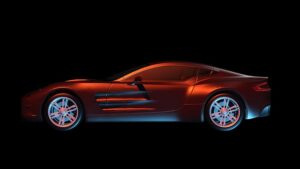Introduction
The carburetor, a device used in internal combustion engines to mix air and fuel for combustion, has been a staple component for many years. However, advancements in technology and the need for more efficient and environmentally friendly engines led to the development of alternative systems. In this article, we will explore what replaced the carburetor and how these new systems have improved engine performance and efficiency.
Fuel Injection Systems
Fuel injection systems have largely replaced carburetors in modern engines. These systems directly inject fuel into the combustion chamber or intake manifold, providing more precise control over the air-fuel mixture. There are several types of fuel injection systems, including electronic fuel injection (EFI) and direct fuel injection (DFI).
EFI systems use electronic sensors to monitor various engine parameters, such as air intake, engine temperature, and throttle position. This data is then processed by an electronic control unit (ECU), which determines the ideal fuel injection timing and duration. The fuel is sprayed into the intake manifold or directly into the combustion chamber through fuel injectors.
DFI systems, on the other hand, inject fuel directly into the combustion chamber, bypassing the intake manifold. This allows for even greater control over the air-fuel mixture, resulting in improved combustion efficiency and power output. DFI systems are commonly found in high-performance and modern engines.
Benefits of Fuel Injection Systems
Improved fuel efficiency is one of the key advantages of fuel injection systems over carburetors. The precise control over the air-fuel mixture ensures that the engine operates at its optimal efficiency, reducing fuel consumption and emissions. This is particularly important in today’s world, where environmental concerns and fuel economy are major considerations.
Another benefit is enhanced engine performance. Fuel injection systems allow for more accurate fuel delivery, resulting in better throttle response, increased power output, and smoother operation. The ability to adjust the air-fuel mixture based on various engine conditions also improves engine performance across different operating ranges.
Fuel injection systems also offer improved cold starts. Carburetors often struggle to provide the correct air-fuel mixture during cold weather, leading to rough idling and poor performance. Fuel injection systems, on the other hand, can adjust the mixture based on temperature and other factors, ensuring reliable starts and smoother operation in cold conditions.
Electronic Control Units (ECUs)
To effectively control fuel injection systems, electronic control units (ECUs) are used. These are sophisticated computer systems that receive input from various sensors and make real-time adjustments to the fuel injection process. ECUs continuously monitor engine conditions and adjust the air-fuel mixture accordingly, optimizing performance and efficiency.
Conclusion
In conclusion, the carburetor has been largely replaced by fuel injection systems in modern engines. These systems offer improved fuel efficiency, enhanced engine performance, and better cold start capabilities. The use of electronic control units further enhances the precision and control over the air-fuel mixture. As technology continues to advance, we can expect further improvements in fuel injection systems, leading to even more efficient and powerful engines.
References
– www.carburetor-parts.com
– www.popularmechanics.com
– www.hotrod.com













